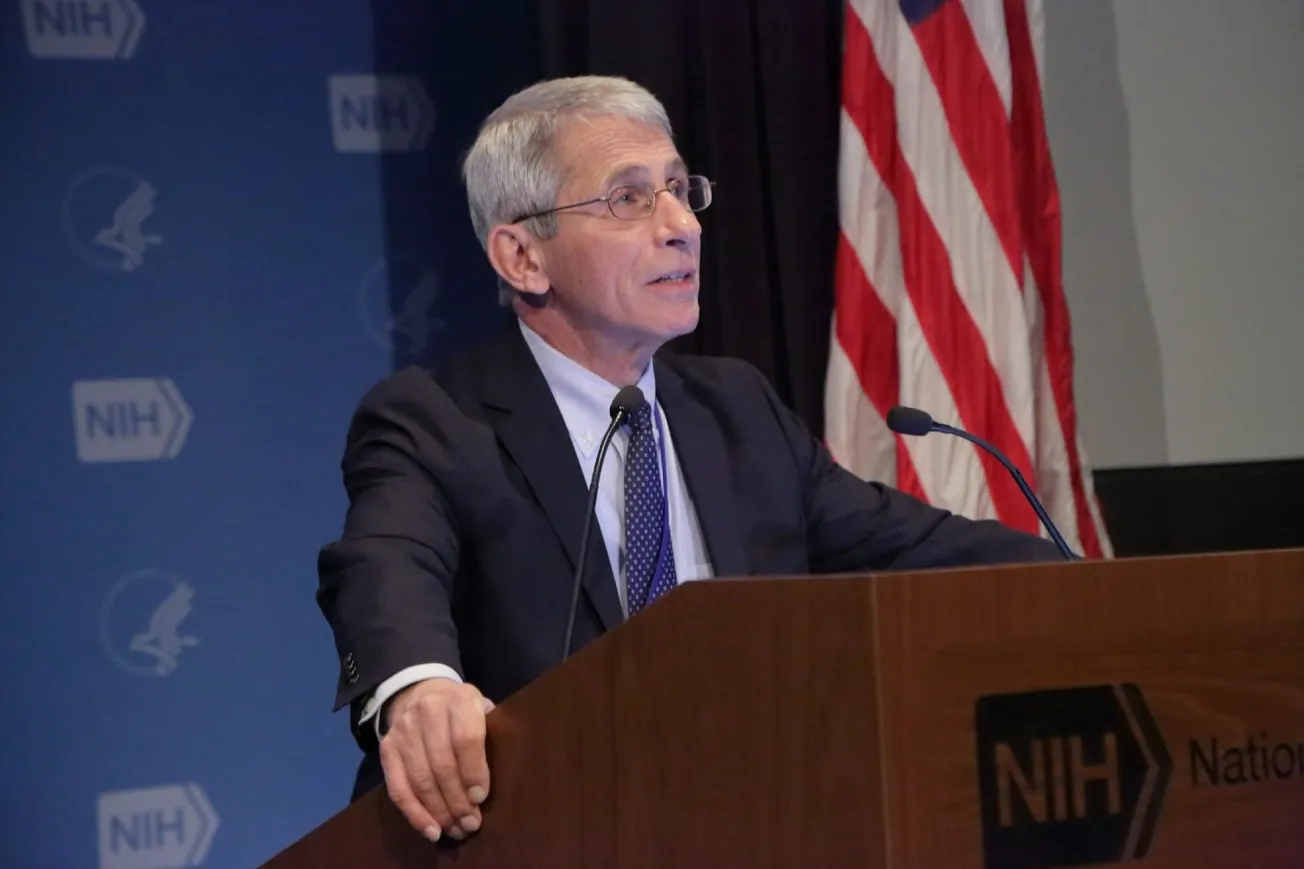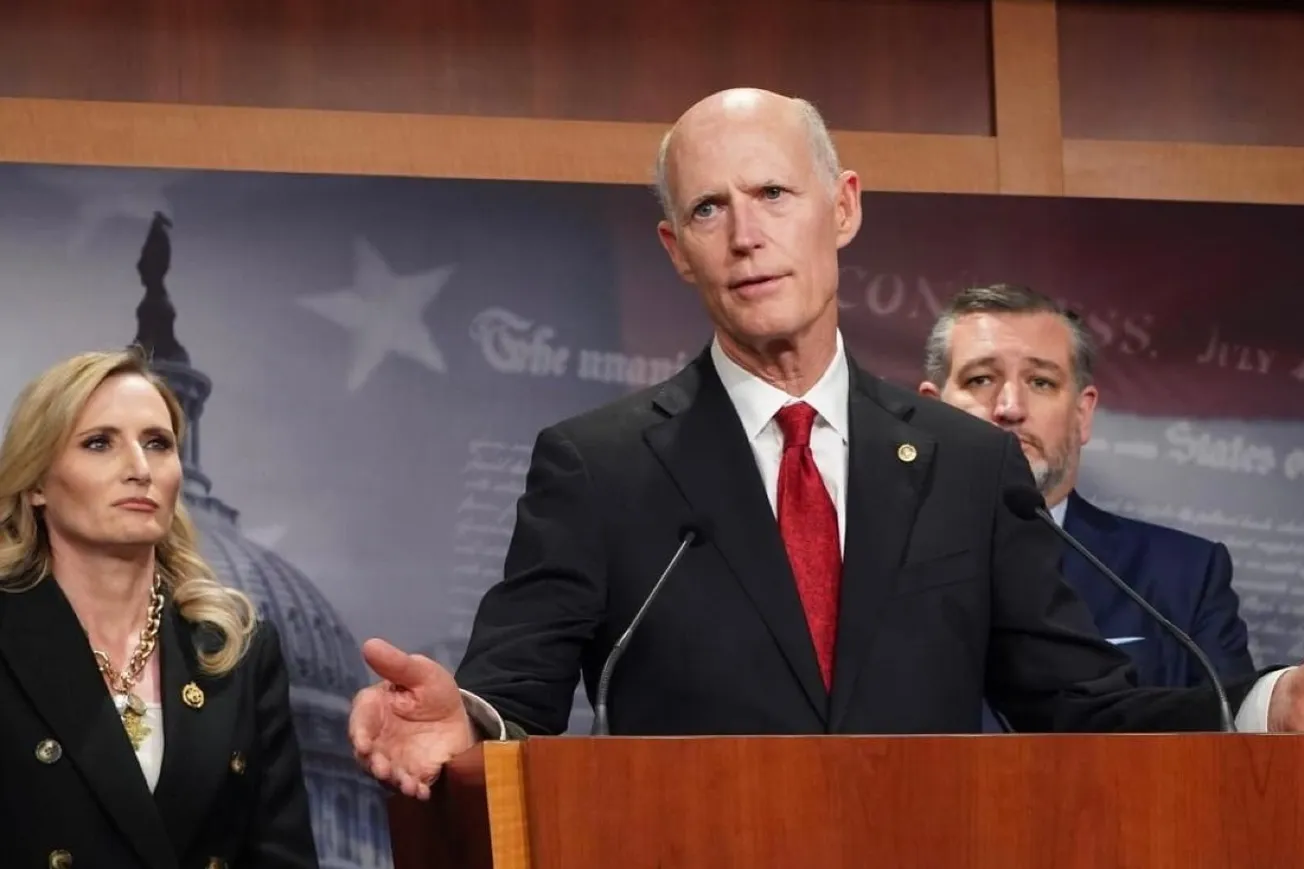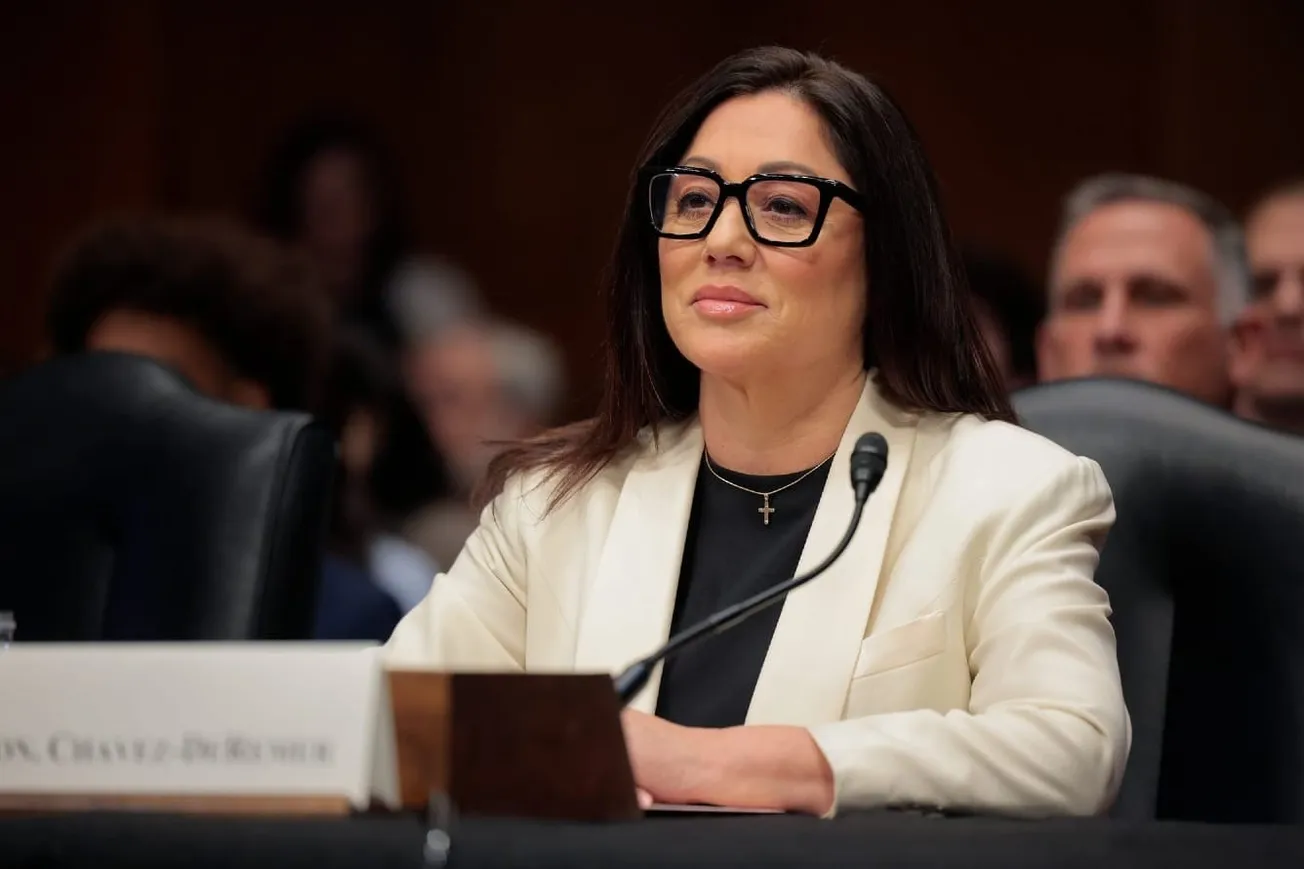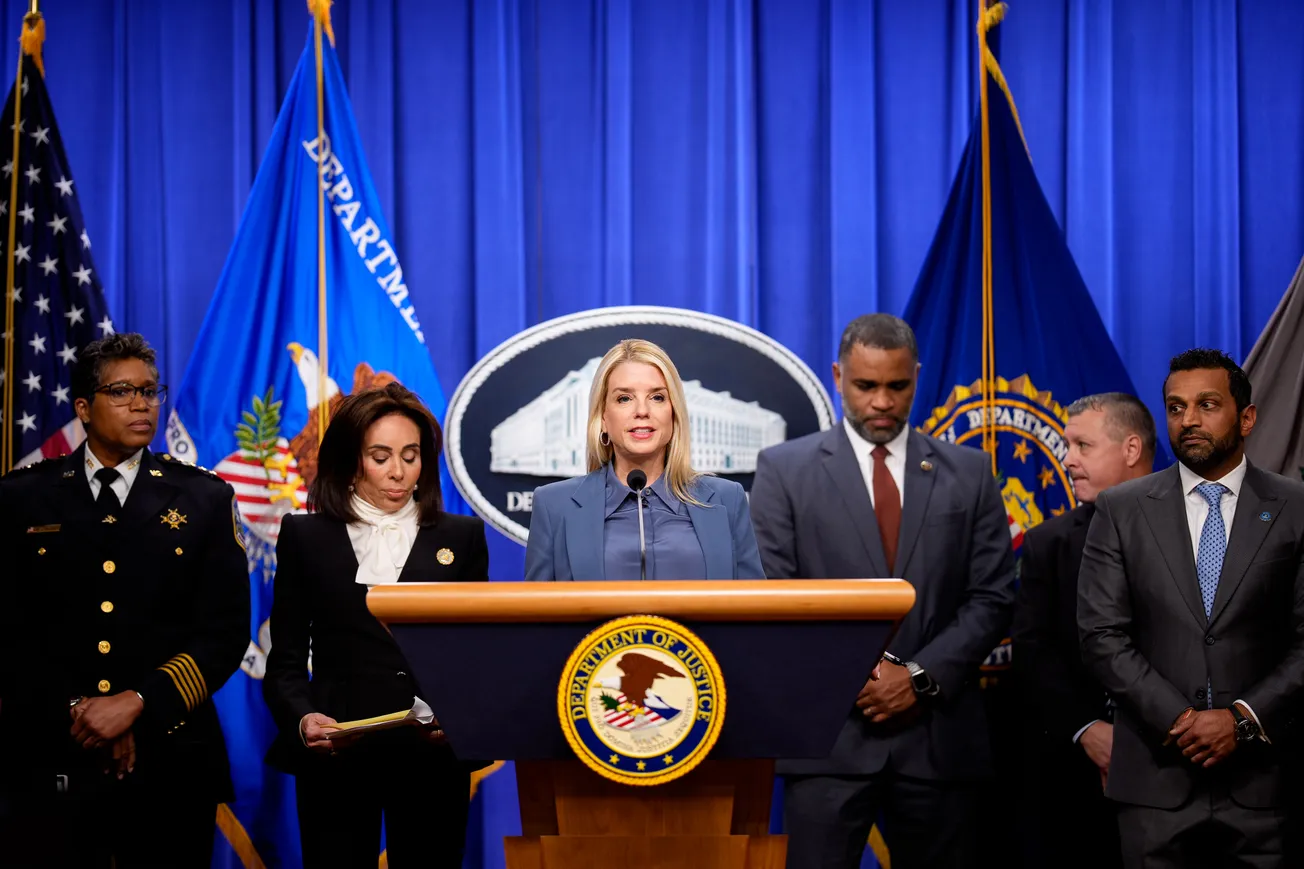By Robert Moffit via The Daily Signal | January 02, 2025
It seems President Joe Biden won’t stop at letting his convicted son Hunter off the hook. The White House staff is reportedly pondering an unprecedented, preemptive set of presidential pardons for numerous officials who haven’t been formally charged or convicted of federal crimes but may be liable for indictment or conviction under the incoming Trump administration.
Prominent on that list is Dr. Anthony Fauci, former director of the National Institute of Allergy and Infectious Disease.
Why Fauci? Team Biden is mum. But the most likely rationale is a possible perjury charge: Fauci testified under oath in congressional inquiries. At issue: Fauci’s responses to the crucial question of whether American taxpayers’ dollars were used to fund viral “gain of function” experiments—research designed to enhance transmissibility or virulence of a pathogen—in a Chinese laboratory.
That issue just resurfaced in a meticulous 520-page report issued by the House Select Subcommittee on the Coronavirus Pandemic.
“Dr. Fauci’s testimony was, at a minimum, misleading,” congressional investigators concluded. “As established, at the time of Dr. Fauci’s testimony senior NIH (National Institutes of Health) officials and the NIH website defined gain of function research as a ‘type of research that modifies a biological agent so that it confers a new or enhanced activity to that agent.’ Further witness testimony and a plain reading of Eco Health’s research conducted at the WIV (Wuhan Institute of Virology) using U.S. taxpayers’ dollars confirm it facilitated an experiment that conveyed new or enhanced activity to a pathogen—thus, satisfying the definition of gain of function research.”
The Tangled Web
For over three years, congressional investigators have been trying to untangle a complex web of relationships, financial and otherwise, between NIH grantees and American scientists and subgrantees, including top scientists in China, particularly at the Wuhan Institute of Virology, a center of coronavirus research.
Congressional investigators have also struggled to get clarity on certain controversial lab experiments in China, especially those conducted under the auspices of the EcoHealth Alliance, a New York-based recipient of substantial taxpayer funding courtesy of Fauci’s agency.
Over the period 2017 and 2018, researchers at the Wuhan Institute of Virology, a subgrantee of EcoHealth, experimented with genetically engineered bat coronaviruses that made them more pathogenic. In that experiment, “humanized mice” (mice engrafted with human cells) were infected with these coronaviruses, and a number of them were sickened and died.
There is no evidence that this particular Wuhan-EcoHealth experiment was, in itself, responsible for the COVID-19 pandemic. Several scientists examining the case concluded that the viruses used in this specific set of experiments were too far removed from SARS-CoV-2 to have originated it. Nonetheless, in the EcoHealth case, the virulence of the coronavirus had clearly been enhanced. And, in his Jan. 5, 2024, testimony, as cited by the subcommittee report, acting NIH Director Lawrence Tabak agreed that this case was clearly “generic” gain-of-function research.
Examining the evidence, including the testimony of top NIH officials, the subcommittee thus concluded that EcoHealth was, in fact, facilitating gain-of-function research on coronaviruses at the Wuhan Institute of Virology.
The Big Questions
The central questions are these:
- Did the American taxpayers inadvertently fund dangerous gain-of-function research in China?
- Did Fauci and his colleagues know that their grantee (the EcoHealth Alliance) and their subgrantee (the Wuhan Institute of Virology) were conducting such research?
- Did they fully comprehend the grave dangers involved in such experiments?
- Did Fauci truthfully respond to congressional investigators concerning these matters?
Complicating the problem is that the technical term “gain of function” has more than one meaning, and various viral gain-of-function experiments have very different levels of risk.
There is a difference between (a) the broader or generic NIH definition of gain-of-function research (cited by the subcommittee) that “modifies” a biological agent that confers “new or enhanced activity to that agent” and (b) the P3CO Framework (2017) that imposes funding restrictions on “potential pandemic pathogens.”
The latter is a subset of pathogens that are highly transmissible, have the potential of an “uncontrollable spread, and are “highly virulent” and likely to cause “significant morbidity and mortality” in humans. This is a narrower category, or subset, of gain-of-function research. And that category is subject to funding restrictions.
Based on the record, these definitional differences are at the heart of the Fauci controversy. On May 11, 2021, Fauci told the Senate that his agency did not fund coronavirus gain-of-function research in China. His credibility came into sharp focus on July 20, 2021, during a contentious Senate hearing. Warning him that lying to Congress was a crime, Sen. Rand Paul, R-Ky., again asked Fauci whether his agency funded viral gain-of-function research in China, and Fauci repeatedly denied it.
Following a bitter exchange and dissatisfaction with Fauci’s responses, the next day, Paul requested Attorney General Merrick Garland to investigate the truthfulness of Fauci’s sworn testimony. Garland ignored the request. On July 14, 2023, Paul renewed the request. Again, no response. Citing new circumstantial evidence, on Aug. 8, 2023, Paul then asked Matthew Graves, U.S. attorney for the District of Columbia, to investigate the matter. Again, no response.
Competing Definitions
Today, Fauci claims that he and Paul were talking past each other in using different definitions of gain-of-function research. For example, in his Jan. 8, 2024, sworn testimony to House investigators, Fauci summarized his position:
I said that the NIH subaward to the Wuhan Institute was not to do gain of function research. I was referring specifically to the operative definition of gain of function at the time, which is the P3CO framework. And the P3CO framework is a policy and a framework that came out of a policy guidance from three years of discussions led by OSTP (the Office of Science and Technology Policy), the National Academies of Sciences, and multiple scientific working groups that came out with a very precise definition. And the precise definition was any experiment that is reasonably anticipated to result in the enhancement of a—and by enhancement it is meant an increase in the transmissibility and or pathogenesis of a PPP. And what a PPP is, is a potential pandemic pathogen. So, if you enhance it, it’s referred to as an “ePPP.” … So, when I was asked the question, did the grant that was a subaward to Wuhan fund experiments that enhanced PPP, that was what I was referring to when I said we do not fund gain of function—gain of function according to the strict definition, which I refer to as the operative definition of gain of function. So, when someone asks me, as a scientist, are you doing gain of function, is that gain of function, I always apply it to the operative definition of gain of function.
Artificial Distinction
Former Centers for Disease Control and Prevention Director Dr. Robert Redfield considers this entire episode an exercise in semantic hair-splitting:
Under the P3CO Framework, the target category is a set of pathogens found in nature that are already dangerous to human beings, and enhancing them through gain-of-function experimentation, federally funded or not, would simply make them more dangerous. Under the Framework’s definition, there would not be a funding restriction, for example, on gain of function research on viruses found in nature that are not yet dangerous to humans. So, under the P3CO Framework, you could conceivably conduct a gain-of-function experiment on viruses not yet dangerous to humans, but deliberately designed to make those viruses dangerous to humans by enhancing their transmissibility and pathogenicity, and that research still would not be considered ‘gain of function’ for the regulatory purpose of restricting federal funding.
As Redfield further explains, “From the standpoint of public health and safety, this distinction is artificial. If you take a virus in the wild, enhance its transmissibility and pathogenicity to humans, through gain-of-function experimentation, you are endangering humanity. Period. In short, by leaning on this regulatory distinction between the generic definition and the Framework, you are insisting on a technical distinction that does not make a real difference in terms of public safety.”
Congressional investigators had, and have, every reason to be suspicious. Note that as of Oct. 19, 2021, the NIH defined “gain of function” research as “a type of research that modifies a biological agent so that it confers a new or enhanced activity to that agent.” That clear and concise definition disappeared from the NIH website “on or about” Oct. 20, 2021, following an inquiry on EcoHealth funding and coronavirus research in Wuhan from Rep. James Comer, R-Ky.
With the incoming Trump administration, congressional investigators should have unrestricted access to unredacted documents, reports, memos, and emails, as well as more unfiltered testimony than even the impressive House Subcommittee on the Coronavirus Pandemic has been able to extract from the uncooperative Biden administration. That flood of evidence will shed more light on the unresolved COVID-19 controversies.
A Disservice
In the meantime, Biden should not offer any type of blanket pardon to Fauci for what he may or may not have done. A preemptive pardon, without indictment or conviction, presumes that Fauci may have done something wrong. His testimony has been consistent, even though it may have been “misleading,” as the House subcommittee report contends. By granting some sort of blanket pardon, Biden would only be further clouding his reputation.
The inept Biden administration’s repeated failures to do the right thing and respond fully and respectfully to legitimate congressional requests has created another problem that a preemptive pardon cannot resolve.
If Fauci’s responses to Paul were truthful, Garland could have quickly complied with Paul’s initial request, reexamined Fauci’s testimony, determined that a perjury charge was unwarranted, and dismissed the entire controversy. Having refused that simple expedient, Garland did a disservice to Fauci and the public. By reexamining the case, with full access to any documentary evidence, perhaps the new attorney general can put this matter to rest.
More work for Pam Bondi.
Robert Moffit, Ph.D., is a senior research fellow in the Center for Health and Welfare Policy at The Heritage Foundation.
Original article link
This article was originally published by RealClearPolitics and made available via RealClearWire









